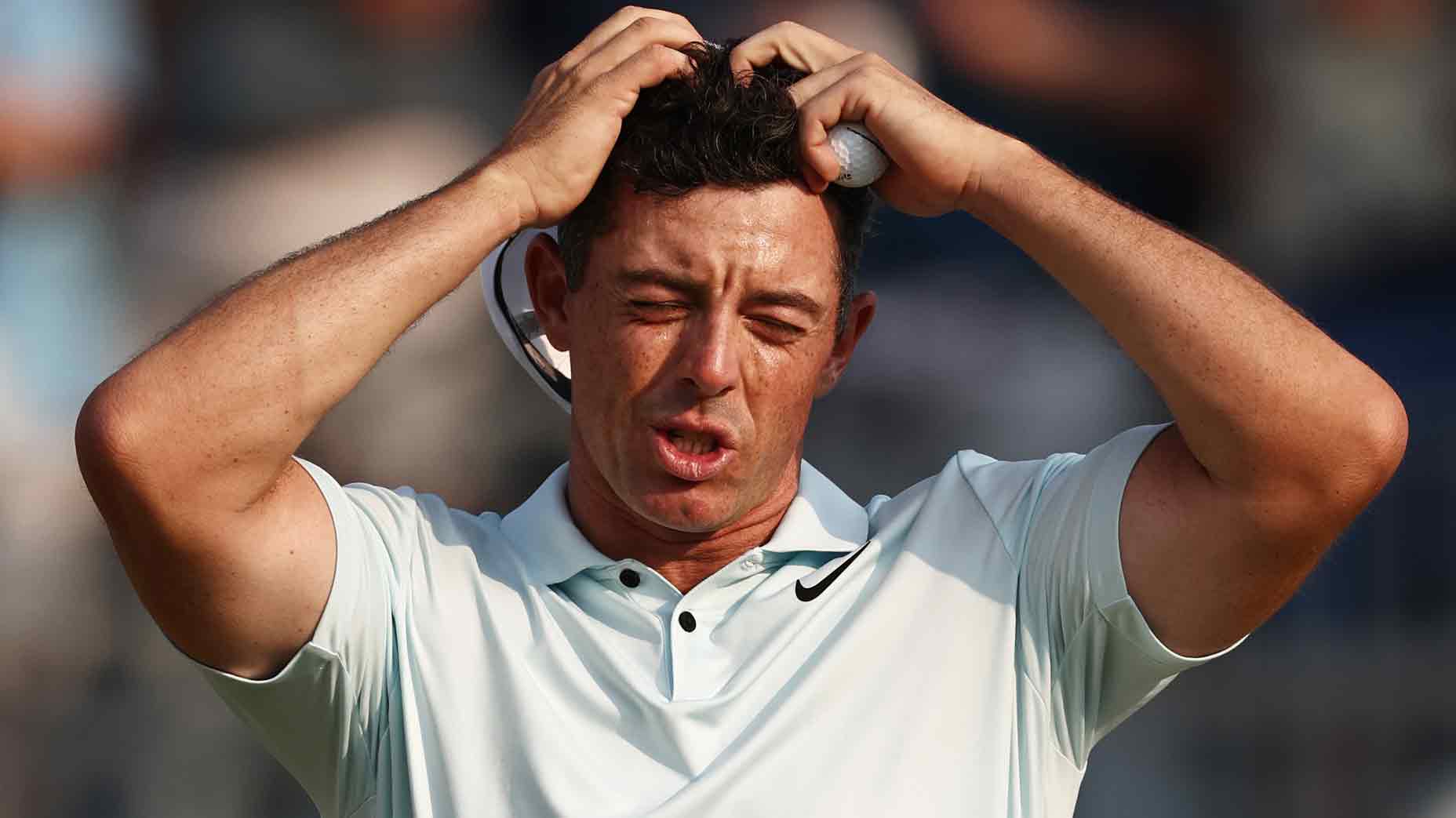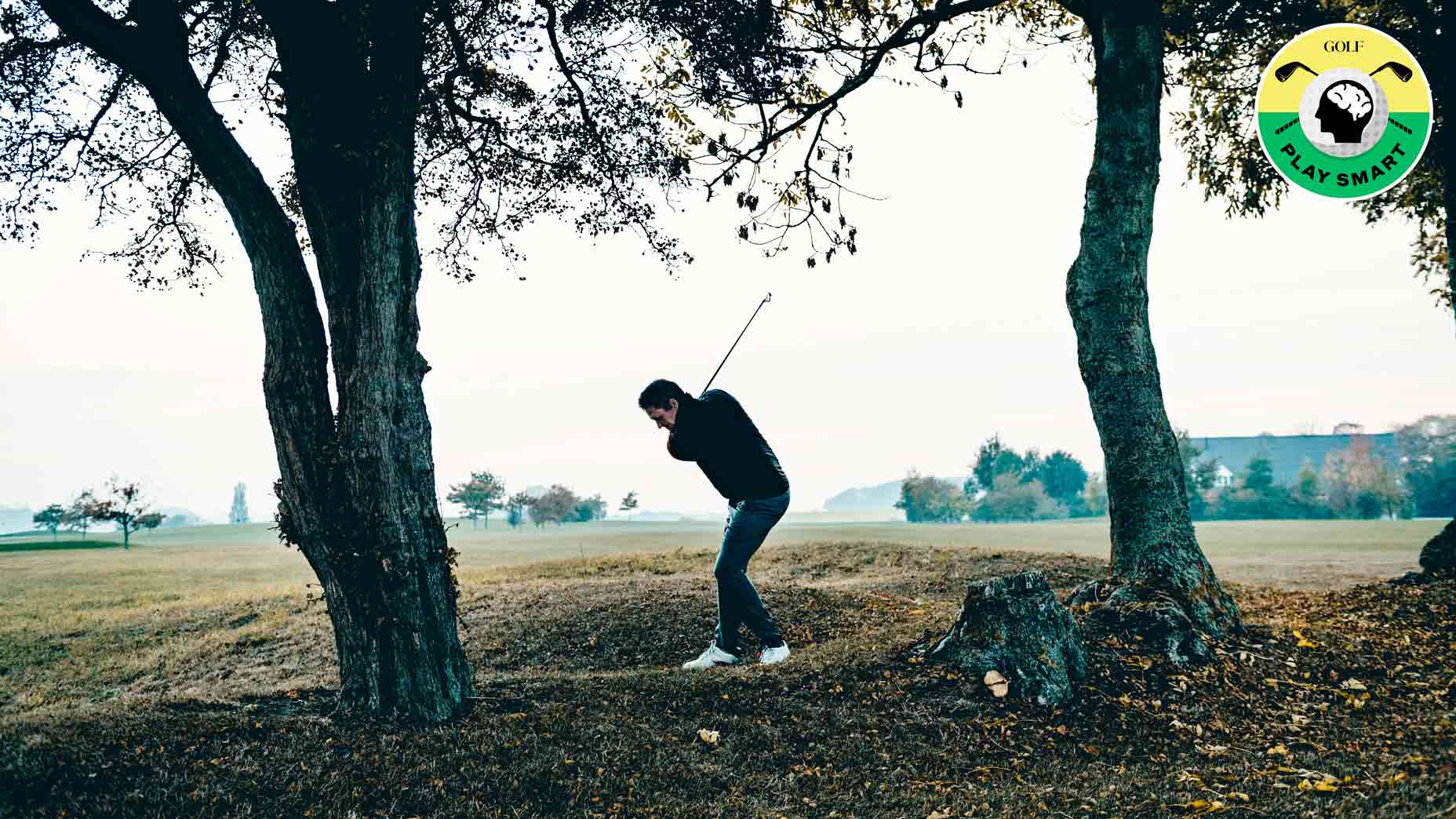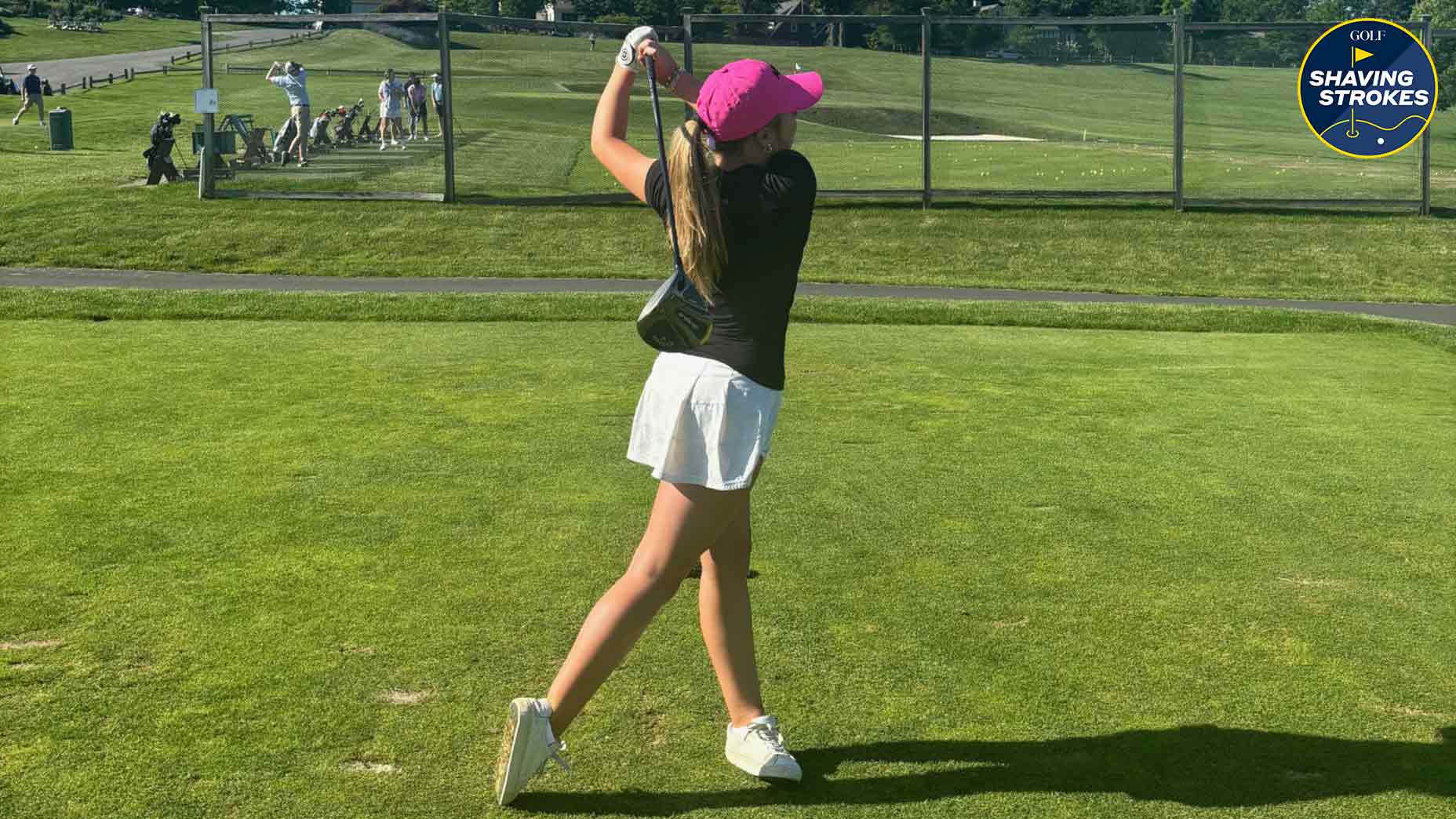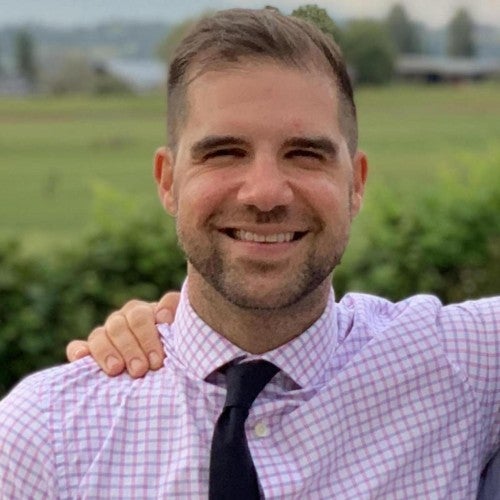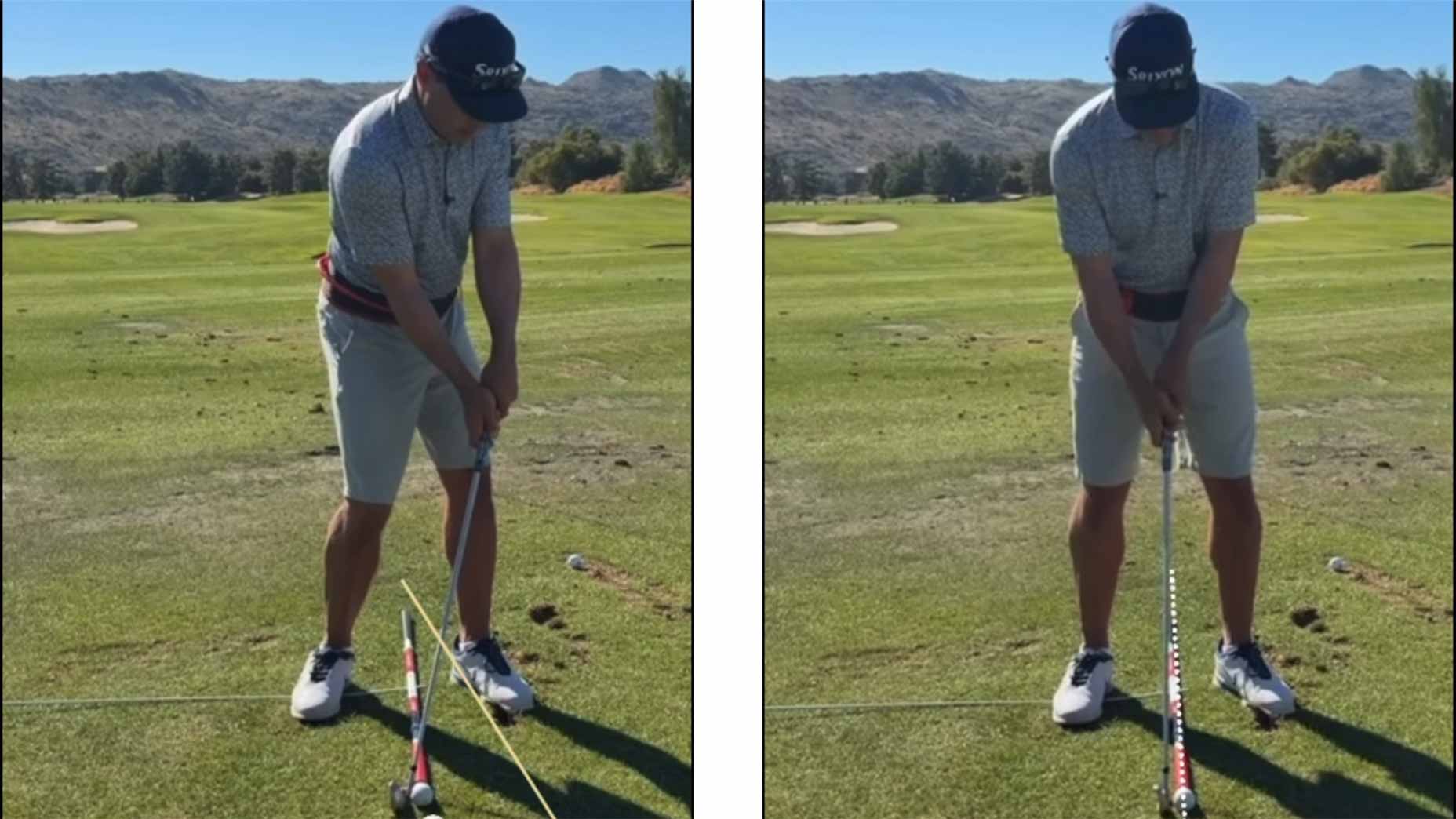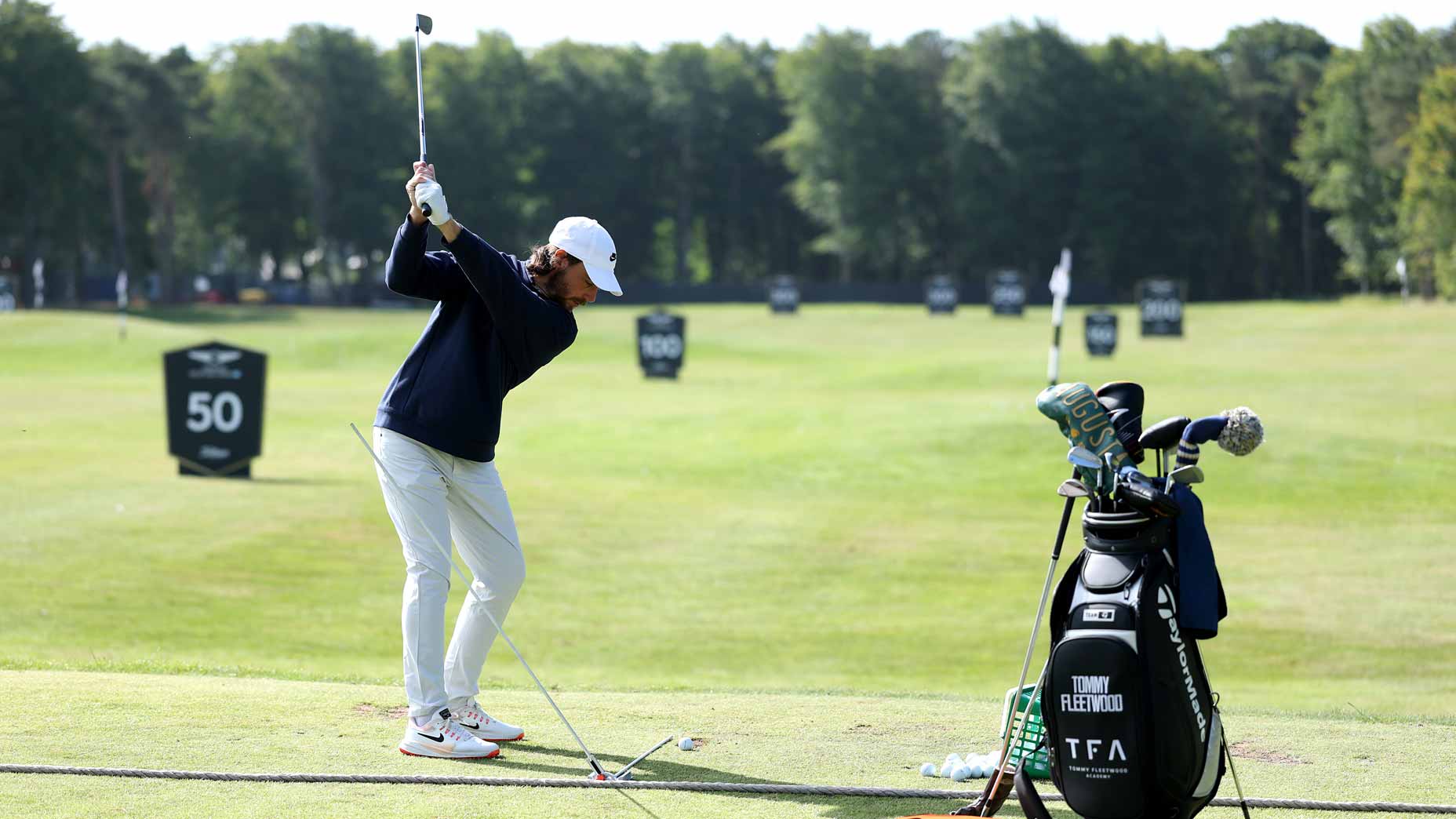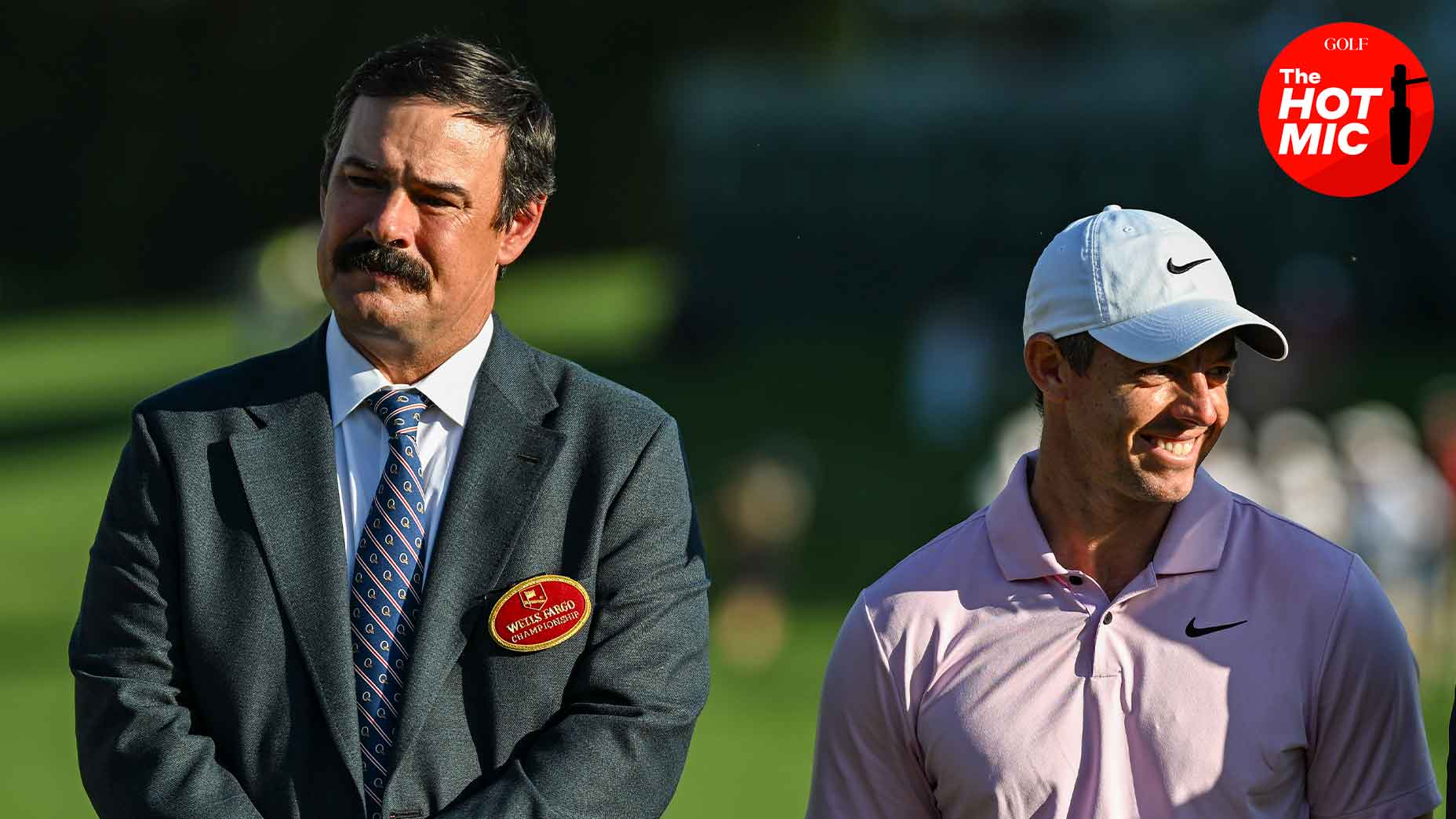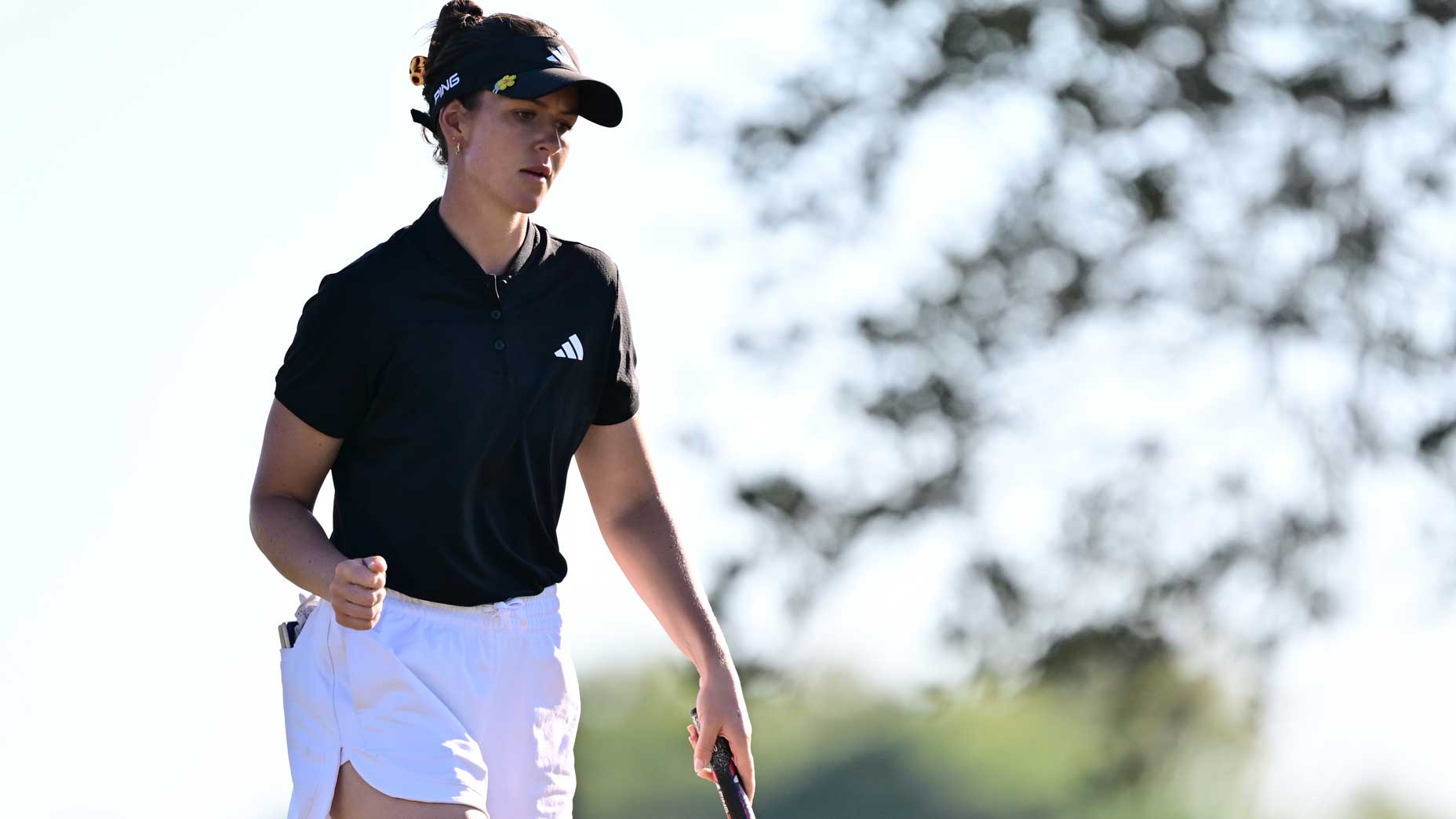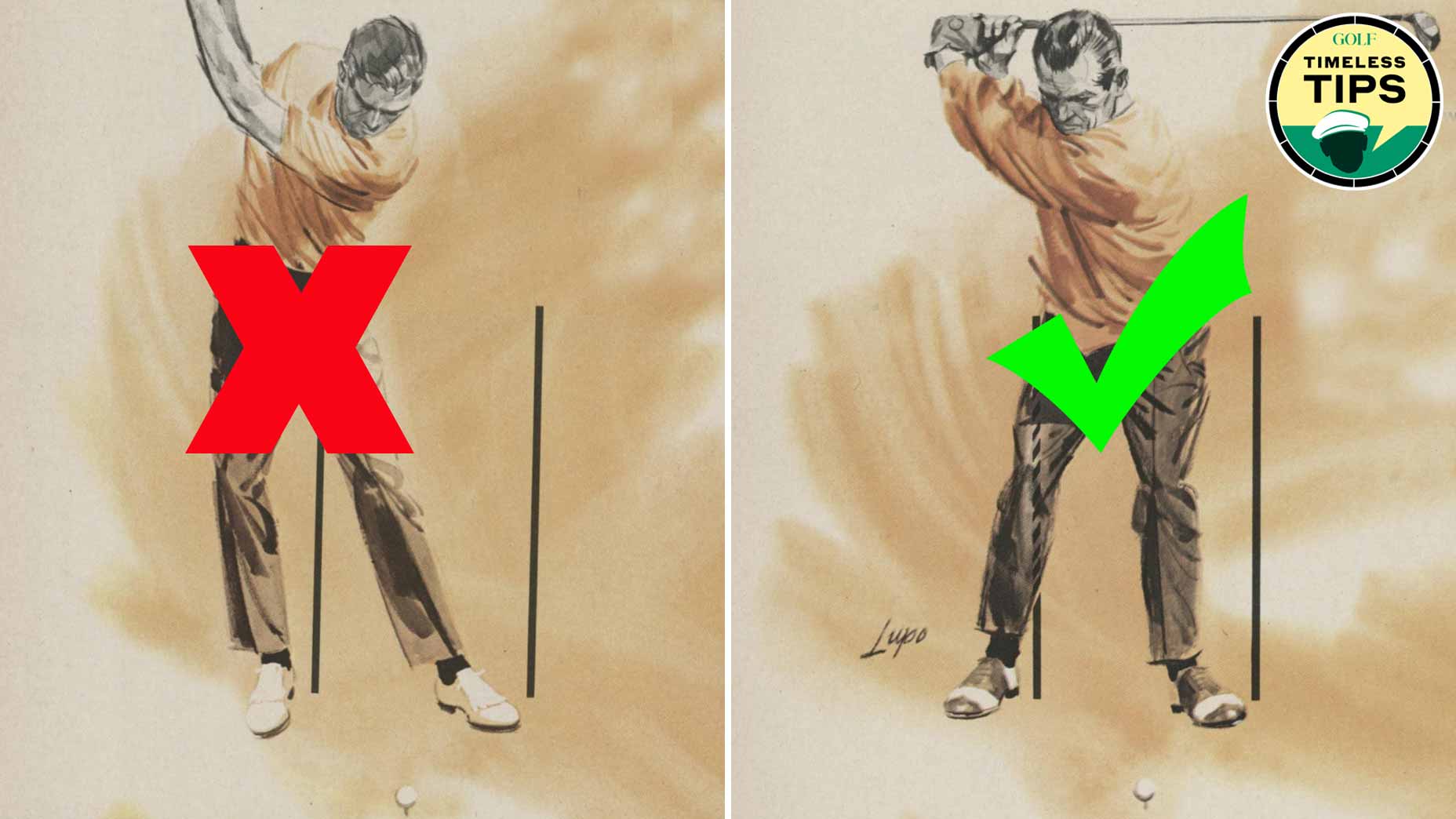The last time golf fans saw Rory McIlroy, he was bolting from the U.S. Open on his private jet after finishing second to Bryson DeChambeau, leaving the grounds at Pinehurst No. 2 less than an hour after he finished his round.
Understandably, the 35-year-old was just a bit frustrated with himself.
After briefly taking the lead on the back 9, all McIlroy needed to do was make some short putts to earn his first major title in a decade — and we all know what happened.
This runner-up finish seems to have hit McIlroy harder than others, with him pulling out of the field at last week’s Travelers Championship, and posting to social media to explain his decision to take some time off from competing until the Scottish Open in mid-July.
Given all that’s been going on in McIlroy’s personal and professional life, the decision to retreat and refresh himself is probably a good one. But with the Open Championship about a month away, will that be enough time to regroup and be back in form for Royal Troon?
It’s been 10 years since McIlroy won a major, and while he’s still one of the best ball-strikers on the planet, time’s ticking for him to get over the hump and break this drought he’s been in during the biggest events of the golf season.
So what’s holding McIlroy back in these major tournaments? GOLF Teacher to Watch Alison Curdt has some ideas — and they’re all relatable (and fixable) issues — so take a look below as Curdt explains.
What’s causing Rory McIlroy’s major slump?
McIlroy’s golf swing is still the envy of many, and his charisma is electrifying. Even without any major wins in the last decade, he remains one of the biggest stars in golf.
While his competitive fire still runs deep, the major slump he’s in is…perplexing.
As a golf coach and licensed sport psychotherapist, I’ve witnessed a few things in McIlroy’s mental game that could be holding him back from finally returning to the top of the leaderboard in a major tournament.
Misdirection of focus on the outcome
We’ve heard it before: Always focus on the process and not the outcome — but what does that really mean?
In sport psychology, research shows that peak performance improves when the golfer focuses on the process, or actions and steps, in order to accomplish a goal. This could be the commitment to a shot, engaging in a pre-shout routine, being mindfully aware of the moment, or noticing oneself in a situation.
In a golf slump? Try these 3 strategies to master the comebackBy: Dr. Alison Curdt , Nick Dimengo
Focusing on the outcome — like the win, clinching the next major, making the cut, or shooting a particular score — only increases the self-induced pressure of the moment, skyrockets anxiety and cortisol levels (stress hormones), and thereby increases heart rate and muscle tension. Doing this also takes a golfer out of the present moment, which can alter the ability to remain in the flow state.
In McIlroy’s case, a redirection of attention to the end result may have reduced his ability to focus on the task at hand — such as sinking a 3-foot putt to tie for the lead at the U.S. Open.
The weight of expectations
McIlroy won his first-ever major at the 2011 U.S. Open, which solidified his status as an up-and-coming superstar. In the three years that followed, he was able to back up that distinction.
But since then, all has been silent on the major front for him. Are the early expectations to blame?
The pressure to perform, especially in majors, can be immense. For McIlroy, this burden might manifest as a subconscious impediment.
The mental strain of living up to both personal and public expectations can alter focus, disrupt routines, and create self-doubt — especially in the high-stakes environment of a major championship. He may also be to blame for this, as he’s created a narrative to the media that his sole focus is winning another major, which becomes a heavier burden each time he doesn’t accomplish that goal.
The complexity of confidence
Confidence is a fragile and dynamic entity. For McIlroy, periods of waning self-belief could be a significant factor.
Unstable, outcome-driven confidence can easily be shattered by a bad round or a critical missed putt — as we witnessed on the 16th and 18th holes at the U.S. Open. This psychological ebb and flow can create an inconsistent mental state, leading to the sporadic performances we sometimes witness.
This high-school golfer was a nervous wreck. Then she used 4 tricks to dial in her gameBy: John Dunigan, Top 100 Teacher , Nick Dimengo
Rebuilding confidence, particularly in the context of majors, requires a robust mental fortitude and, often, external support from coaches and sports psychologists.
One way McIlroy can attempt to free himself up from the self-imposed pressure of winning another major is by ignoring the narrative he’s created. While he doesn’t have the quirky personality of DeChambeau — who seems to have found his voice through social channels, presenting a more authentic version of himself — this type of mentality would serve McIlroy well.
Is there another major in McIlroy’s future? I personally believe that there is. But it will require him to shift his mentality from always being results-focused — which isn’t an easy task for elite-level athletes like him.

TaylorMade Qi10 Max Custom Driver
View Product
